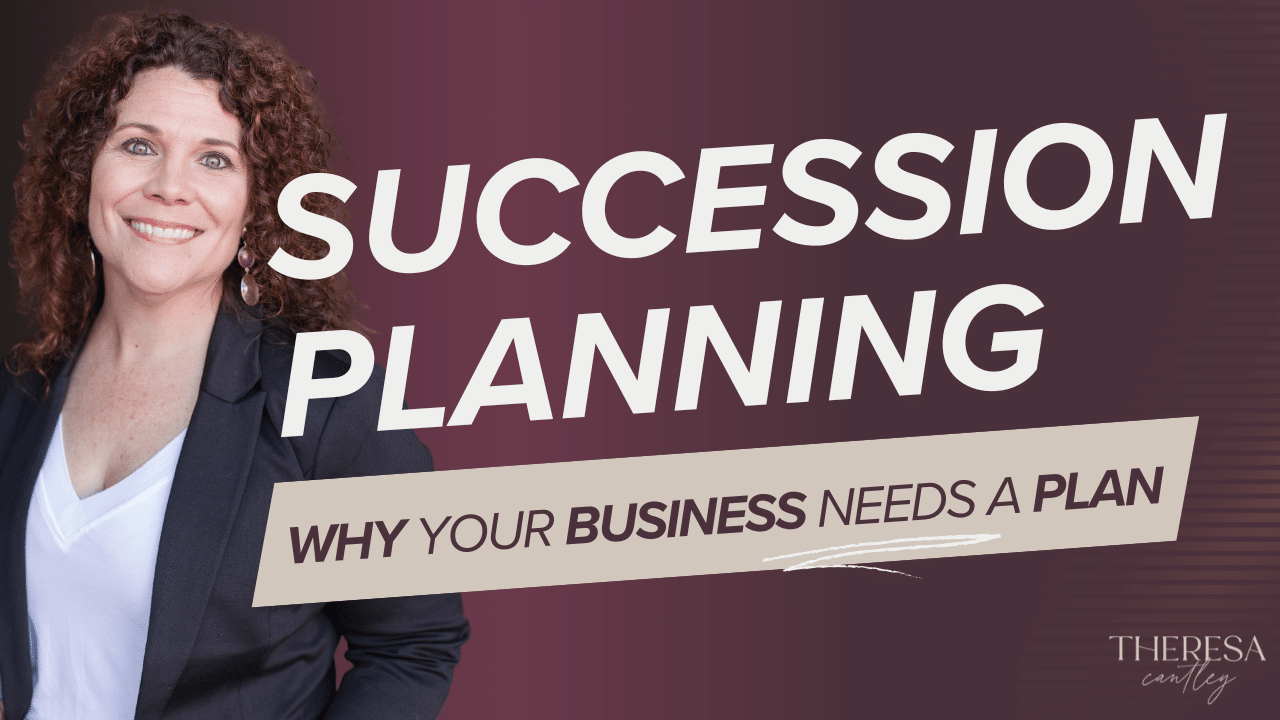As a business owner, you’ve likely heard about the importance of succession planning. But how often have you thought to yourself, “What exactly is the importance of succession planning? I’m not big enough for that,” or “Isn’t that just for transferring ownership of the business?” If this sounds familiar, you’re not alone.
Many business owners see succession planning only as a way to hand off their business when they’re ready to retire. But the importance of succession planning goes far beyond ownership transitions – it ensures your business continues to thrive in any situation.
The Importance of Succession Planning
We’re living in an age of constant change. Whether it’s economic shifts or a global pandemic, businesses face new challenges every day. The companies that survive are those that can adapt quickly – and that’s where succession planning becomes key.
Whether you run a small local business or a growing company, you need to start thinking about succession planning at different levels. This strategy helps you to know that, no matter the changes in leadership, employees, or the economy, your business remains agile and ready to adapt.
3 Types of Succession Planning That Every Business Needs
Many business owners overlook succession planning because they are intimidated or don’t know where to start. But it doesn’t have to be confusing. Let’s break down 3 different types of succession plans you want to have – no matter the size of your business.
1. Employee Development Succession Plan
You need to have a development plan for all of your employees from the ground up. Not every employee will want to move up into leadership, but personal and skill development should be available at all levels.
2. Leadership Development Succession Plan
A leadership development succession plan ensures that you’re consistently developing the next level of leaders within your company. Some leaders have a toxic trait of hoarding knowledge, which leads to employees getting disgruntled and frustrated. However, true leadership is about inspiring and empowering others to grow, which ultimately strengthens the business as a whole.
3. Ownership Succession Plan
This is what everyone thinks about when they hear “succession plan.” Whether you plan to sell your business, pass it on to a family member, or promote someone from within, it’s crucial to have a clear ownership transition plan. This plan should outline who will take over ownership, how the transition will occur, and what role (if any) the former owner will play moving forward.
3 Reasons For the Importance of Succession Planning for Any Small Business
No matter what size your business is or if you plan to grow your business or transfer it soon, here are 3 big reasons why succession planning is important.
1. You Create a Growth Mindset
When you have several succession plans in place at once, you create a growth mindset and entrepreneurial thinking that encourages innovation. You keep people thinking about growth and future thinking, and keep the forward momentum of the business moving.
2. Continuity
Succession plans ensure the business can thrive no matter what happens. I have seen situations where business owners get sick, and there were no other leaders set to take their place. There was a mega breakdown in the business because no one knew what to do.
You never want to leave your business without a plan in place to keep things moving when the unexpected happens. Succession plans allow for continuity.
3. Employee Retention
When you develop a succession plan that focuses on leadership and skills development, you’re not just preparing for transitions – you’re also creating an environment where employees want to stay and grow. Employees are far more likely to join and remain with a company when they see opportunities for personal and professional development.
When growth is evident in a business, the culture within the business will be healthier. Why? Because when people see that there’s growth, they’ll want to stay there. It fosters a healthy work culture where entrepreneurial thinking is encouraged, and employees feel safe to express ideas and concerns. This kind of culture naturally boosts engagement and retention.
4. It Stops Knowledge Loss
If someone leaves and there is no succession plan, then whatever knowledge they have goes with them. Stopping knowledge loss in businesses is important because knowledge is vital for innovation – and with our ever-changing markets, we need to make sure innovation is at the forefront.
How to Get Started with Succession Planning
Now that you understand the importance of succession planning, here are 3 simple steps to get started.
Create an Accountability Chart
Start by mapping out your business. Identify who’s in charge of what and determine where you might have gaps in leadership. You can then begin developing leaders internally or hire from the outside if needed (although I’m a big believer of hiring within). This process will also help you remove yourself from daily operations so you can focus on driving your business forward.
2. Assess Your Internal Talent
Take a close look at your current team. Where are their strengths? Where do they need training or development? Regularly assessing your internal talent helps you identify who’s ready for leadership roles and where you need to provide support.
3. Establish Career and Skills Development Paths
Once you’ve identified potential leaders, work on creating clear paths for their growth. Whether it’s leadership development or skill-building, the key is ensuring that your team knows you’re invested in their future.
The Importance of Succession Planning for All Businesses
Succession planning isn’t just for ownership transitions. It’s about building your business from the inside out, so you can push your business vision forward. By investing in your team’s growth and development, you’re not only securing your business’s future but also creating a better environment for everyone involved.
Resources Mentioned
Schedule a Virtual Coffee with Theresa


